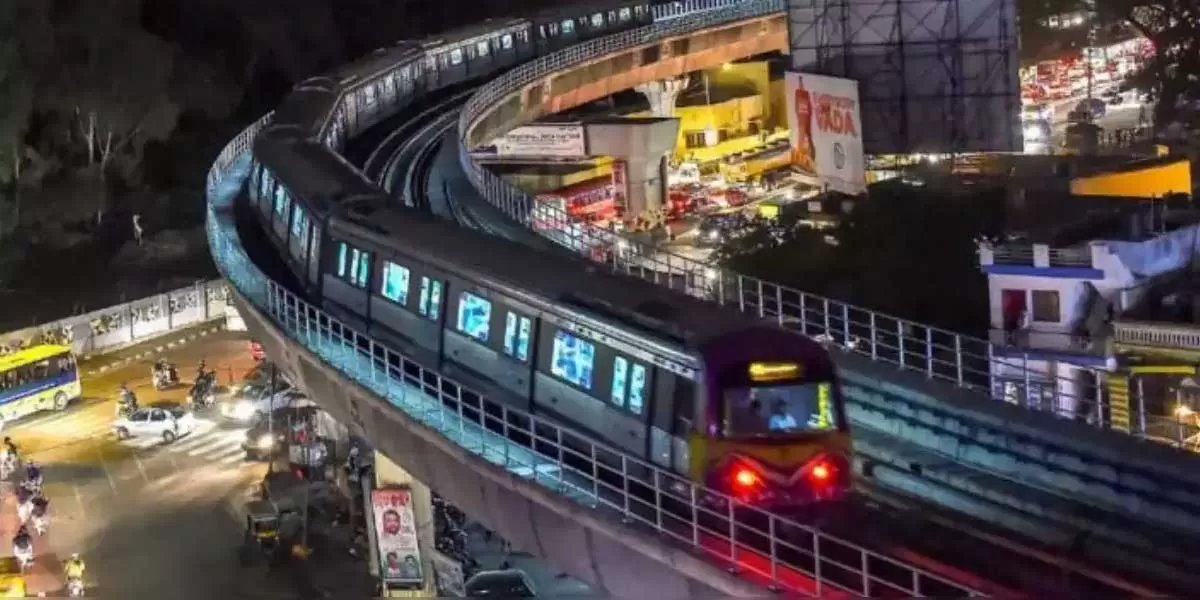The Karnataka government is pushing for important projects to improve water supplies, airport operations, and highway improvements while also seeking approval for the third phase of Bengaluru Metro. The Central Government is being urged to speed up the Bangalore Metro Rail project, as the State Government of Karnataka is aggressively pursuing permissions for two crucial phases of the project. Phase three, which is expected to cost Rs 156.11 billion, has been approved by the Public Investment Board and is awaiting Union Urban Development Ministry final certification. In May 2024, Chief Minister Siddaramaiah highlighted the importance of the project and that the necessary paperwork was ready for Central Government evaluation after a meeting and suggestions.
The state government has received the detailed project report (DPR) for Phase 3A of the Bangalore Metro Rail Corporation Limited (BMRCL) project, which is the Hebbal-Sarjapur metro line. With a projected cost of Rs 284 billion, this 37-kilometer route has 17 stations?11 elevated and 6 subterranean. Compared to earlier stages (Rs 3.3 billion for Phase 1, Rs 4 billion for Phase 2, and Rs 2.54 billion for stages 2A and 2B), the higher cost per kilometre, currently Rs 7.68 billion for Phase 3A, has raised concerns. The Central Government's final clearance, which may include any changes recommended during review, is still pending despite the state government's consent. The Central Government's permission is a prerequisite for the project's timeframe, and BMRCL projects completion in less than a year. Important changes are anticipated at Dairy and Ibblur. Notably, land acquisition costs of Rs 99 billion constitute a significant portion of Phase 3A?s expenses, shared between the state and central governments. The ongoing negotiation and approval process underscores the challenges and complexities of executing large-scale urban infrastructure projects amidst rising costs and logistical intricacies.
In order to boost exports, the Karnataka state government is requesting clearance from the Central Government for two major projects: the Mekedatu drinking water project for Bangalore and the surrounding districts, and the transformation of Bangalore International Airport into an air cargo complex. With 67 TMC of water to be provided, the Mekedatu project has been delayed since 2018 and needs approval from the Union Environment Ministry. The airport project was filed in June 2024 with the goal of improving export infrastructure to support economic growth.
The Chief Minister emphasised the pressing necessity of finding solutions regarding the designation of 39 "in-principle approved roads"?a total of 5225 km?as National highways. He stressed the need to refocus attention on improving state highways carrying more than 10,000 PCU per day in order to improve transportation efficiency and lessen traffic. Among the specific ideas is a tunnel on NH-75 to improve Mangaluru-Bengaluru connectivity, benefiting economic growth. Additionally, plans for a flyover at Manipal Hospital junction on NH-275 and nine grade separators along NH-275K in Mysore Ring Road aim to alleviate urban traffic congestion. Siddaramaiah stressed these projects? importance for Karnataka?s infrastructure development and economic prosperity.
Siddaramaiah placed further focus on infrastructure upgrades, such as the construction of a cable car service for Gokak Falls in Belagavi District and the creation of an elevated corridor in Belagavi City along the former NH-4 (Pune-Bangalore Section). Building bypasses for Kalburgi and Raichur, as well as improving the highways that connect Kittur town to Bailhongal town in Belagavi District, are essential for regional connectivity. In addition, he said, "It is imperative to improve traffic flow and safety to widen the Belur-Chikkamagaluru Section on NH-373 to four lanes and to undertake one-time improvements on NH-150A within Challakere town limits." In order to effectively handle the increasing demand for transport, Siddaramaiah emphasised the significance of extending NH-766 (Old NH-212) to four or six lanes from the Kerala/Karnataka border to Kollegal via Gundlupet, Nanjangud, and Mysuru. These proposals aim to address critical infrastructure needs, support economic development, and improve connectivity across Karnataka, enhancing the overall quality of transportation and facilitating smoother movement of goods and people throughout the region.





















